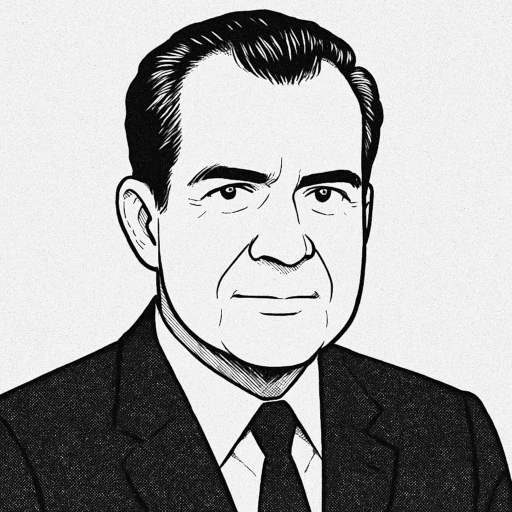“My own view is that taping of conversations for historical purposes was a bad decision on the part of all the presidents. I don’t think Kennedy should have done it. I don’t think Johnson should have done it, and I don’t think we should have done it.”

- January 9, 1913 – April 22, 1994
- American
- The 37th President of the United States, Lawyer, Politician
table of contents
Quote
“My own view is that taping of conversations for historical purposes was a bad decision on the part of all the presidents. I don’t think Kennedy should have done it. I don’t think Johnson should have done it, and I don’t think we should have done it.”
Explanation
In this quote, Richard Nixon offers a retrospective critique of presidential taping systems, which recorded conversations and phone calls within the White House. By grouping himself with predecessors like John F. Kennedy and Lyndon B. Johnson, Nixon acknowledges that he was not the first to use such a system, but asserts that the practice itself was fundamentally flawed. His admission that “we should not have done it” is a rare moment of candid self-criticism, implying that the risks of recording private conversations far outweighed any historical benefit.
The historical significance of this quote is profound. It was the Nixon White House taping system—intended to preserve a comprehensive record of presidential decisions—that ultimately provided the evidence leading to his resignation during the Watergate scandal. The infamous “smoking gun” tape revealed Nixon’s involvement in the cover-up, making the existence of the tapes the critical turning point in the collapse of his presidency. Thus, this quote is both an acknowledgment of personal and institutional misjudgment and a reflection on how technology meant for posterity became a tool of accountability and downfall.
In modern terms, the quote speaks to ongoing concerns about privacy, transparency, and historical documentation. It raises questions about how leaders should preserve records, how those records may be used, and the balance between openness and confidentiality in executive decision-making. Nixon’s reflection stands as a reminder that efforts to control history can backfire, and that the very mechanisms intended to preserve legacy may also expose it to unanticipated judgment.
Would you like to share your impressions or related stories about this quote in the comments section?

